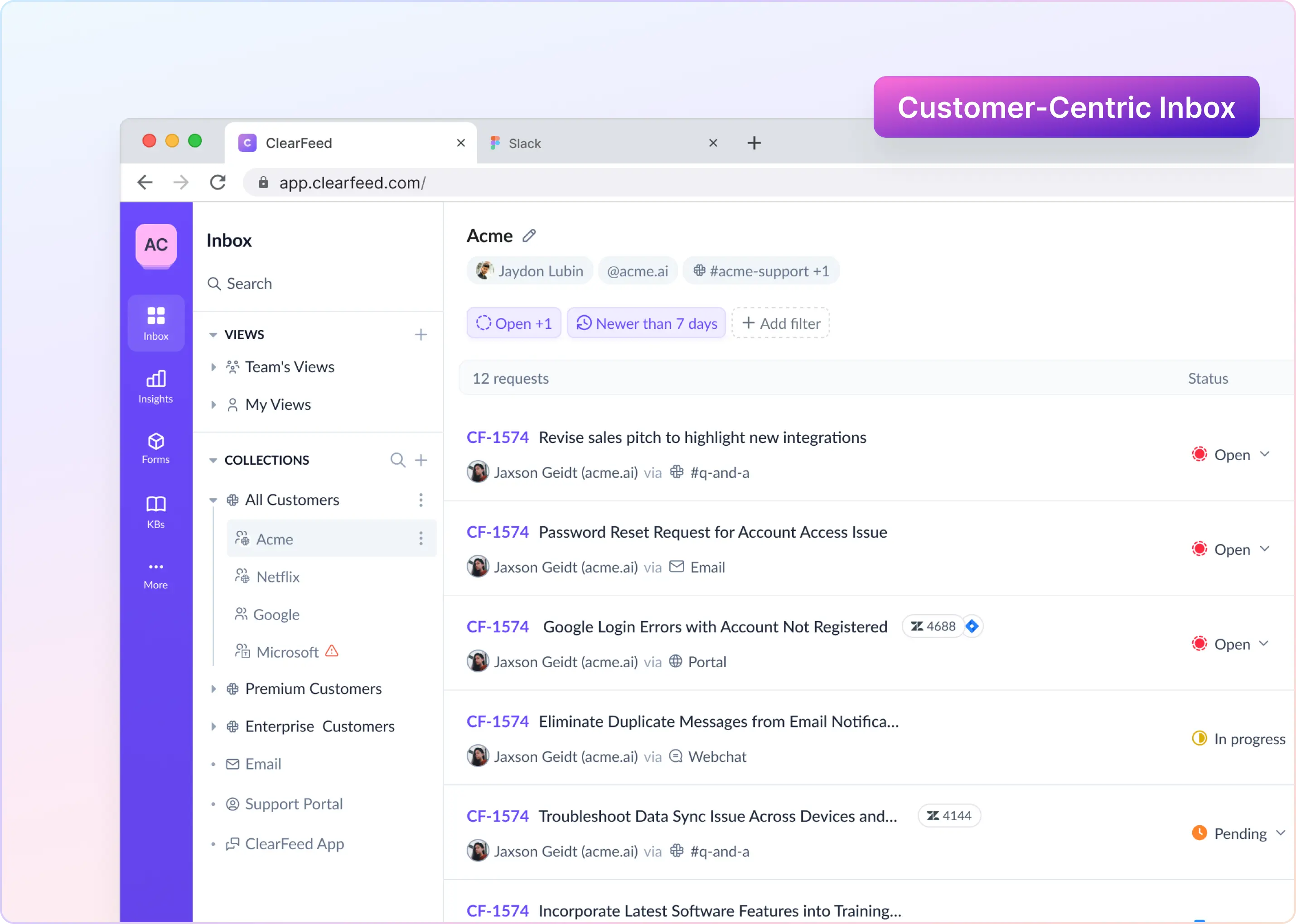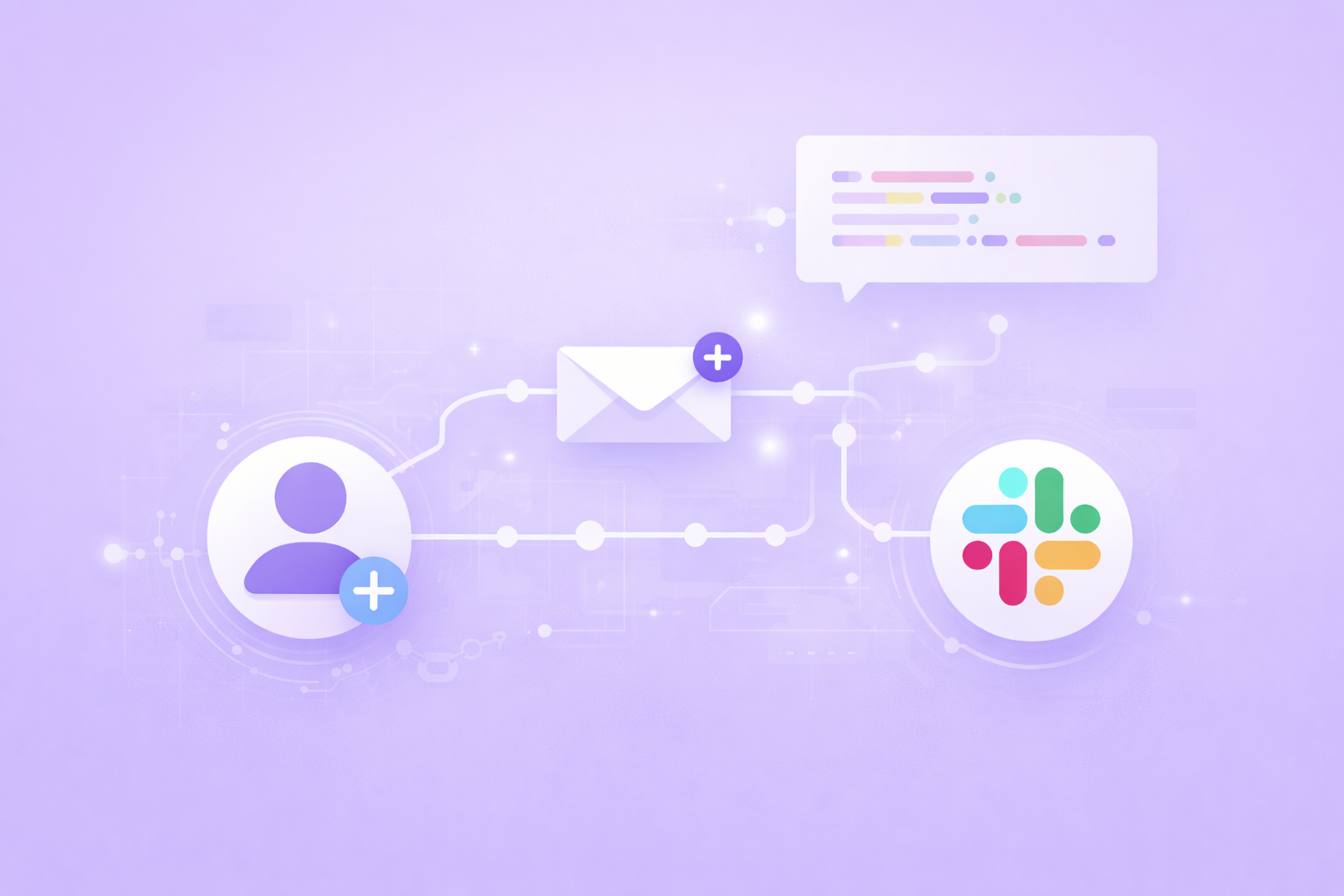Are you looking for the best SaaS help desk software for your customer support in 2025? With customer expectations at an all-time high, finding the right tool to handle inquiries is relatively hard for any business.
A study reveals that 80% of customers switch to a competitor after just one poor support experience. So, whether you're running a small startup or managing a large enterprise, choosing the right help desk software can significantly improve your customer experience.
This blog will cover the top SaaS help desk software solutions, highlighting their key features, pricing, and best use cases to help you make an informed choice for your business.
What Is SaaS Help Desk Software?
SaaS help desk software refers to cloud-based platforms that allow businesses to manage support operations without the need for on-premise infrastructure. These tools are delivered through the Internet and offer various functionalities, such as ticketing systems, live chat, knowledge bases, and reporting tools.
Here are some primary advantages of SaaS help desk tools:
- Scalability: Supports business growth by managing higher ticket volumes effortlessly.
- Advanced Reporting: Provides real-time analytics to track performance and customer satisfaction.
- Seamless Integration: Connects with CRM, email, and social media to centralize customer interactions.
With these advantages, SaaS help desk tools provide the flexibility and power needed to enhance your customer support operations.
Factors to Consider When Selecting a SaaS Helpdesk Software
When choosing a SaaS help desk software, several key features and functionalities can significantly impact the effectiveness of customer support operations. Here are the most important aspects to look for:
- Features and Functionality: Look for complete ticket management systems that organize and prioritize customer inquiries. Make sure the help desk has tools like automation, a knowledge base, and self-service portals. It should support multiple channels (email, live chat, social media, phone) to ensure all customer interactions are covered.
- Ease of Use: The software should have a user-friendly interface that allows support agents to adapt to the system quickly. Efficient navigation, intuitive ticket handling, and minimal training requirements are essential for maximizing productivity.
- Integration Capabilities: Ensure the help desk software can integrate seamlessly with other business tools such as CRM systems, project management tools, or communication platforms like Slack. This enables teams to access customer data, manage projects, and collaborate effectively, all from a single platform.
- Scalability: The help desk software should be scalable to accommodate business growth. As your customer base expands, the system must be capable of handling higher ticket volumes and supporting larger teams. Reports show that 60% of high-growth companies leverage help desk systems, showing a strong correlation between scalability and business expansion.
- Reporting and Analytics: Robust analytics and reporting features are important for tracking performance. These tools should provide detailed insights into ticket resolution times, agent productivity, and customer satisfaction. Customizable dashboards allow businesses to monitor KPIs in real time and make data-driven decisions to improve support operations.
- Cost and Pricing Structure: You need to find flexible subscription plans that match your business needs. Be aware of any potential hidden costs, such as extra charges for adding more agents or accessing advanced features.
Top SaaS Help Desk Software Solutions
Here’s a detailed overview of the top SaaS ticketing system tools available in 2025, focusing on their core features, strengths, weaknesses, and best use cases.
1. ClearFeed

ClearFeed is an AI-powered ticketing system built specifically for teams that use Slack as their primary communication platform. It allows users to create, manage, and resolve support tickets directly within Slack, ensuring a smooth workflow without needing to switch between multiple apps.
It supports both external support and internal support operations, automating routine tasks and responses through its AI platform. With deep integration capabilities and a strong focus on collaboration, ClearFeed helps SaaS companies streamline their support processes by transforming Slack into a fully functional help desk.
Key Features:
- Ticket Management in Slack: Convert Slack messages and threads into support tickets without leaving the platform, and also provides private ticketing for confidential support
- AI-Powered Automation: Automates responses to frequently asked questions and pulls data from over 100 sources like Confluence, Google Docs, and Notion
- SLA Management and Alerts: Define SLAs for different types of requests and get alerts within Slack for SLA violations to stay compliant
- Third-Party Integrations: Integrates with tools like Zendesk, Jira, Freshdesk, Salesforce, and Intercom, allowing for seamless ticket synchronization across platforms
- Triage Channels: Enables agents to collaborate within Slack and post public replies to tickets, making internal collaboration efficient without leaving the Slack interface
Best Use Cases: ClearFeed is ideal for SaaS companies that use Slack as their primary communication tool and want a streamlined, Slack-native ticketing solution.
ClearFeed offers a free trial period for 14 days. Get started with it today!
2. Zendesk

Zendesk is a comprehensive customer service platform designed to enhance customer interactions and streamline support processes. Its cloud-based software integrates various customer support channels, enabling companies to manage inquiries efficiently from a single interface.
Zendesk is known for its omnichannel support, which allows teams to manage inquiries across email, social media, live chat, and phone. It also integrates AI-powered features such as chatbots and automated workflows, which can efficiently handle routine inquiries and ticket routing.
Key Features of Zendesk:
- Ticketing System: The core feature of Zendesk is its robust ticketing system that organizes customer requests into manageable tickets, allowing agents to prioritize and resolve issues effectively
- Automation and Workflows: Zendesk offers automation tools to streamline repetitive tasks and workflows, improving efficiency and response times for support teams
- Integrations: Zendesk seamlessly works with numerous third-party applications, enhancing its functionality and allowing businesses to connect their existing tool
- AI-Powered Features: The platform includes AI capabilities to anticipate customer needs and provide personalized experiences through automated responses and insights
Best Use Cases: Zendesk is a great fit for enterprise customer support, where large organizations need advanced analytics and collaboration tools to manage complex service requirements across multiple departments.
3. ServiceNow

ServiceNow is a leading cloud-based platform designed to automate and streamline various enterprise workflows, primarily in IT service management (ITSM) but extending to other business functions such as customer service, HR, and security operations.
ServiceNow provides a unified platform that helps organizations improve efficiency, reduce costs, and enhance service delivery through automation and intelligent workflows.
Key Features:
- Comprehensive IT Service Management (ITSM): ServiceNow offers robust tools for incident management, problem management, change management, and service catalog management
- Workflow Automation: The platform allows users to create automated workflows without extensive coding knowledge, streamlining processes across departments and reducing manual tasks
- Unified Platform: All ServiceNow products are built on the Now Platform, offering a single system of record that integrates various business functions such as IT, HR, customer service, and security
Best Use Cases: ServiceNow is ideal for large SaaS companies with complex IT and customer support needs, particularly those that handle both internal IT management and external customer support.
4. Freshdesk

Freshdesk is a cloud-based IT service management (ITSM) solution developed by Freshworks. It is designed to simplify and enhance IT operations for businesses of all sizes. It combines various functionalities, such as incident management, asset management, and project management, into a single platform.
Key Features:
- AI-Powered Automation: The built-in Freddy AI automates routine tasks, enhances self-service options, and provides insights for quicker resolutions
- Asset Management: Freshdesk provides real-time visibility into hardware and software assets through an auto-updating algorithm, enabling better control over IT resources
- Customizable Workflows: The no-code drag-and-drop automation feature allows users to create tailored workflows without needing extensive technical knowledge
Best Use Cases: Freshdesk is well-suited for small to medium businesses looking for an affordable, scalable solution to manage customer inquiries across multiple channels
It’s particularly useful for companies that want to streamline ticket management and offer self-service options. Suitable for finance teams needing to automate processes related to budgeting, forecasting, and financial reporting.
5. Zoho Desk

Zoho Desk is cloud-based customer service software developed by Zoho Corporation. It is designed to streamline support operations and enhance customer engagement. It provides businesses with tools to manage customer interactions across various channels.
Key Features:
- Intuitive Ticket Management: The platform offers an organized ticketing system that allows agents to prioritize and track tickets easily. It has features like ticket assignment, escalation rules, and automation streamlining
- Customizable Help Center: Businesses can create a tailored Help Center that aligns with their brand's identity. This includes the ability to publish articles and FAQs to assist customers in finding solutions independently
- Reporting and Analytics: Zoho Desk provides detailed analytics and reporting tools to monitor customer satisfaction, agent performance, and ticket resolution times
- Mobile Accessibility: With dedicated mobile apps for iOS and Android, agents can manage tickets and respond to customers on-the-go
Best Use Cases: It’s particularly suitable for companies already invested in the Zoho ecosystem and looking to consolidate their business tools. SaaS companies that need highly customizable workflows will benefit from Zoho Desk’s flexibility, making it a great fit for businesses that require tailored support solutions.
6. HappyFox

HappyFox is a cloud-based help desk and customer support software designed to streamline support processes.
The platform integrates seamlessly with SaaS companies that rely on Slack for internal communication. It focuses on providing an intuitive user experience while enabling organizations to manage customer inquiries efficiently through a robust ticketing system.
Key Features:
- Automation Tools: The platform features a smart rules engine that automates repetitive tasks, such as ticket assignments and notifications, improving response times
- Self-Service Knowledge Base: HappyFox includes a self-service portal where customers can access FAQs and articles to resolve issues independently, reducing the volume of incoming tickets
- Integration Capabilities: The platform supports integrations with popular tools like Slack and Microsoft Teams, facilitating seamless communication within support teams
Best Use Cases: HappyFox is ideal for small to medium-sized SaaS companies looking for an affordable, easy-to-use help desk solution. Its Slack integration is beneficial for teams that rely on Slack for communication. HappyFox is also a great fit for businesses that need automation to streamline routine support tasks and improve overall efficiency.
7. Jira Service Management

Jira Service Management, developed by Atlassian, is an IT service management (ITSM) tool built specifically for technical teams, making it a favorite among SaaS companies with robust DevOps and IT operations.
Built on the popular Jira platform, JSM combines IT service management (ITSM) capabilities with agile principles, allowing organizations to efficiently manage service requests, incidents, changes, and assets. This solution aims to improve service delivery and customer satisfaction while enabling teams to respond swiftly to business needs.
Key Features:
- Asset and Configuration Management: JSM allows organizations to track and manage IT assets effectively, providing insights into asset performance and dependencies through its Insight tool
- Multi-Channel Request Submission: Customers can submit requests through various channels, including email, help centers, and APIs, ensuring flexibility in how they reach support teams
- Incident Management: JSM includes advanced incident management features powered by Opsgenie, facilitating on-call scheduling, alerting, and incident swarming to resolve critical issues quickly
- Integration with Atlassian Products: Seamless integration with other Atlassian tools like Confluence and Bitbucket enhances collaboration across teams and streamlines workflows
Best Use Cases: Jira Service Management is ideal for SaaS companies with strong IT or DevOps teams that need a powerful tool for managing both internal IT support and customer-facing issues. Its Slack integration enables real-time collaboration, making it perfect for teams that want to speed up issue resolution without leaving their communication platform. It’s particularly useful for businesses that rely heavily on incident management, change control, and DevOps practices.
8. Front

Front is a modern customer communication platform designed to streamline interactions across various channels, enabling teams to manage customer inquiries efficiently. It combines the familiarity of email with the efficiency of a help desk, allowing support, sales, and account management teams to deliver exceptional service at scale.
By centralizing communications in a shared inbox, Front enhances collaboration and provides tools for automation and analytics. It also offers seamless integration for SaaS companies using Slack for collaboration.
Key Features:
- Shared Inbox: Multiple team members can access and manage emails and messages from a single inbox, facilitating collaboration and quick responses to customer inquiries
- Customer Profiles: Front maintains detailed profiles for each customer, providing context for interactions and improving the personalization of responses
- Analytics and Reporting: Detailed analytics provide insights into team performance, response times, and customer satisfaction metrics, helping organizations make data-driven decisions
Best Use Cases: Front is perfect for SaaS companies that want personalized customer communication and team collaboration. It’s ideal for companies that use Slack as their primary communication tool, as the integration allows teams to work together seamlessly on customer inquiries.
SaaS teams focused on customer relationships, particularly in sales and customer success, will benefit most from Front’s shared inbox and remote collaboration features.
Wrapping Up
Choosing the right tool can help your team manage inquiries, solve issues faster, and communicate effectively, both internally and with customers.
ClearFeed is an excellent option for SaaS companies using Slack for internal and external communication. It is a powerful, AI-driven solution that brings help desk functionalities directly into Slack. With its ability to streamline ticket management, automate responses, and provide seamless integration with other tools, It transforms Slack into a fully operational help desk platform.
Book a demo today and see how ClearFeed transforms your support operations and improves overall efficiency—all from within Slack.
















